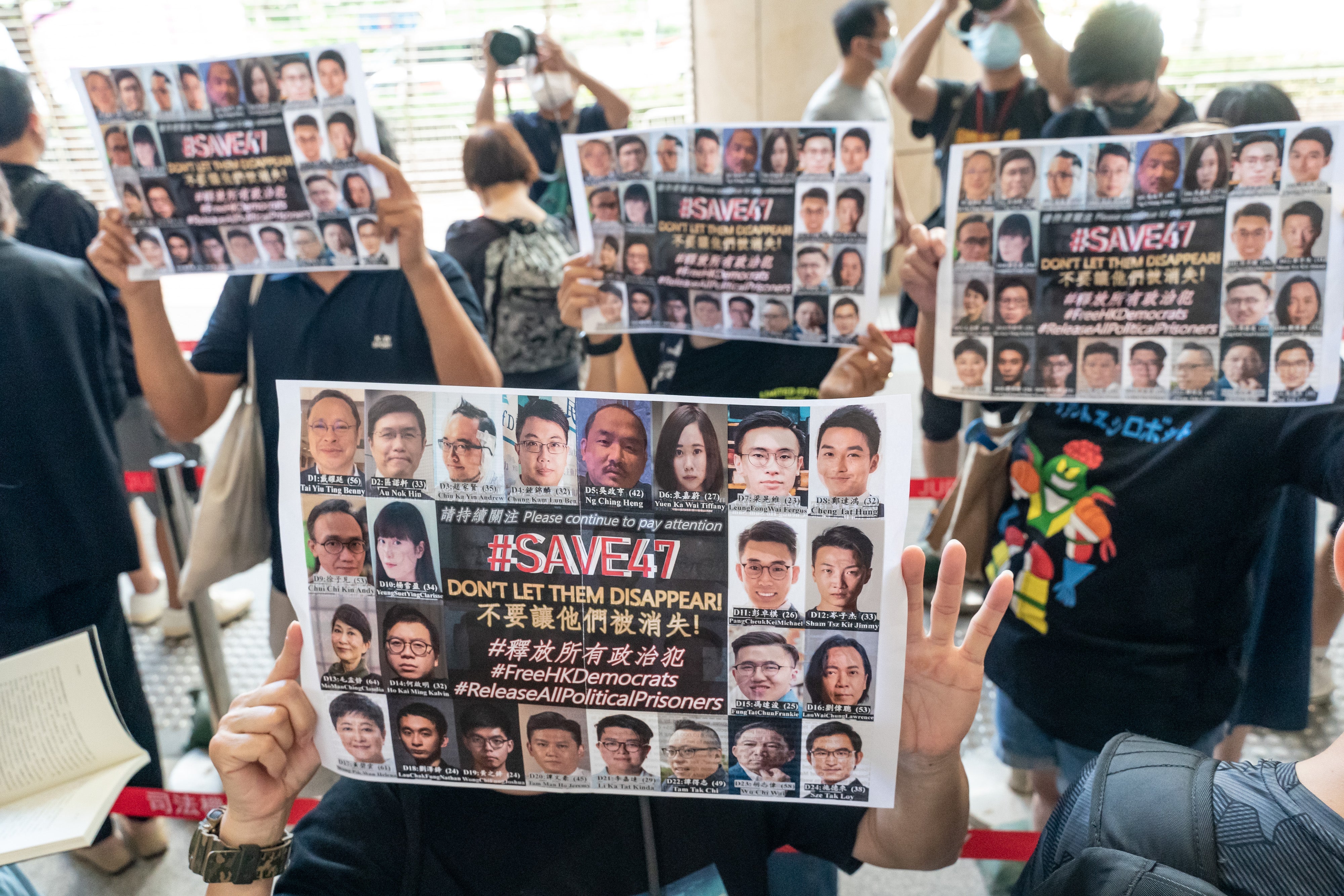Amnesty International to close Hong Kong offices, citing repressive China national security law
‘The environment of repression and perpetual uncertainty created by the national security law makes it impossible to know what activities might lead to criminal sanctions’

Your support helps us to tell the story
From reproductive rights to climate change to Big Tech, The Independent is on the ground when the story is developing. Whether it's investigating the financials of Elon Musk's pro-Trump PAC or producing our latest documentary, 'The A Word', which shines a light on the American women fighting for reproductive rights, we know how important it is to parse out the facts from the messaging.
At such a critical moment in US history, we need reporters on the ground. Your donation allows us to keep sending journalists to speak to both sides of the story.
The Independent is trusted by Americans across the entire political spectrum. And unlike many other quality news outlets, we choose not to lock Americans out of our reporting and analysis with paywalls. We believe quality journalism should be available to everyone, paid for by those who can afford it.
Your support makes all the difference.Amnesty International will close its offices in Hong Kong by the end of the year, the organisation announced on Monday.
The local section office will cease operations on 31 October, while Amnesty’s regional office, which is part of its global operations, is due to close by the end of 2021. The organisation will continue its work from other offices in the Asia Pacific region and its head office in London.
“This decision, made with a heavy heart, has been driven by Hong Kong’s national security law, which has made it effectively impossible for human rights organisations in Hong Kong to work freely and without fear of serious reprisals from the government,” said Anjhula Mya Singh Bais, chair of Amnesty’s International Board in the statement.
The national security law was implemented last June, following months of anti-government protests. It criminalises any act of secession, subversion of state power, terrorism and foreign collusion in Hong Kong’s affairs.
More than 120 people, including pro-democracy activists and supporters have been arrested under the law so far, according to the Associated Press.
Amnesty joins a slew of major trade union organisations that have shut down their operations in Hong Kong in the wake of the implementation of the law. At least 35 groups, including the Civil Human Rights Front, which organised the annual Tiananmen Square vigil in the territory, have shut down since the law came into force.
Critics contend that the national security law is an erosion of freedoms that were promised when the city was handed over to China in 1950.
Amnesty said that the law uses “national security” in a vague sense to clamp down on human rights, freedom of speech and peaceful assembly.
“The environment of repression and perpetual uncertainty created by the national security law makes it impossible to know what activities might lead to criminal sanctions. The law has repeatedly been used to target people who have upset the authorities for any number of reasons — from singing political songs to discussing human rights issues in the classroom,” said Ms Bais.
While Amnesty has documented the repressive actions in Hong Kong since the law was implemented last year, Ms Bais added that the pattern of raids and arrests show how the law can be used to build a case against anyone the authorities want to target.
“There are difficult days ahead for human rights in Hong Kong, but Amnesty International will continue to stand with the people of Hong Kong,” said Agnes Callamard, secretary general of Amnesty International.
Join our commenting forum
Join thought-provoking conversations, follow other Independent readers and see their replies
0Comments